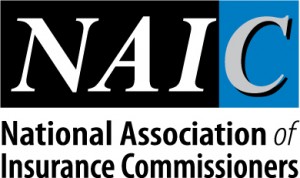The nation’s organization of state insurance regulators is launching an educational program to sell U.S. and foreign leaders and the public on the virtues of the 150-year-old state-based insurance regulatory system.
The National Association of Insurance Commissioners (NAIC) said it is preparing an “unprecedented education program” that will be deployed in Washington, D.C.; Brussels, the capital of the European Union; and in Basel, Switzerland, the seat of the Financial Stability Board (FSB) for the G-20.

The program, called “Protecting the Future,” is “an educational initiative about the indispensable role state-based insurance regulation plays in strengthening the U.S. economy,” according to the announcement.
The NAIC said it has budgeted $590,000 for the program.
The group has produced consumer education programs in the past, but this time it is looking to reach beyond consumers to policymakers with a program that will encompass outreach, special events and social media.
“The U.S.’s state-based insurance regulation system has an unmatched track record and can best adapt to meet our future economic and financial challenges,” said Ben Nelson, NAIC chief executive officer. “By ensuring soundness, solvency, stability and competition, state-based insurance regulation does more than make insurance markets work—it protects the future for American consumers, employers and the economy as a whole.
“Through this new initiative, we are going to make sure the compelling value proposition of state-based insurance regulation is well understood by policymakers, business leaders, consumer advocates and economic thought-leaders,” said Nelson, who is a former state insurance regulator and U.S. senator for Nebraska.
The group says it is a “critical time” for such state regulation because “some federal officials and global regulators are seeking unprecedented authority over American insurance markets, including the imposition of bank-centric regulation on insurance companies.”
The NAIC, Nelson and its other leaders have been critical of recommendations for an expanded role for the federal government in U.S. insurance regulation, attempts to apply capital requirements suitable for banks to insurance companies and moves to introduce global capital requirements on insurers.
State regulation advocates are also concerned that the international Financial Stability Board in Basel, Switzerland, could be gaining too much influence in the U.S. when it comes to financial regulation.
The NAIC’s membership includes 56 insurance regulators from U.S. states and territories. Twenty-four of the 50 largest insurance markets in the world are U.S. states where an NAIC member is the regulator, the NAIC said in publicizing the work of its member.
“Our proven system continues to effectively evolve as the states respond to emerging issues, new products, innovations and changes in the financial services landscape,” said NAIC President Adam Hamm, who is also North Dakota’s insurance commissioner. “Federal officials need to understand that what works in one state may not work in another. State insurance regulation works because it’s specific to the industry’s unique risks and able to reflect state-specific considerations.”
While it is focused on state matters, the NAIC has an International Insurance Relations Committee that works on international insurance regulatory issues and advises the Federal Insurance Office on international trade issues involving insurance.
NAIC also has an International Fellows program in which foreign interns participate in an orientation at NAIC headquarters that focuses on the broad principles of insurance regulation in the U.S. Each fellow then travels to a different state for four to five weeks, working in areas of their specialization under the supervision of a state insurance department staff member who serves as a mentor and host. This past February, the program welcomed fellows from the Czech Republic, India, Nigeria, Saudi Arabia and Taiwan.





















 What Analysts Are Saying About the 2026 P/C Insurance Market
What Analysts Are Saying About the 2026 P/C Insurance Market  Flood Risk Misconceptions Drive Underinsurance: Chubb
Flood Risk Misconceptions Drive Underinsurance: Chubb  Winter Storm Fern to Cost $4B to $6.7B in Insured Losses: KCC, Verisk
Winter Storm Fern to Cost $4B to $6.7B in Insured Losses: KCC, Verisk  How Americans Are Using AI at Work: Gallup Poll
How Americans Are Using AI at Work: Gallup Poll 











